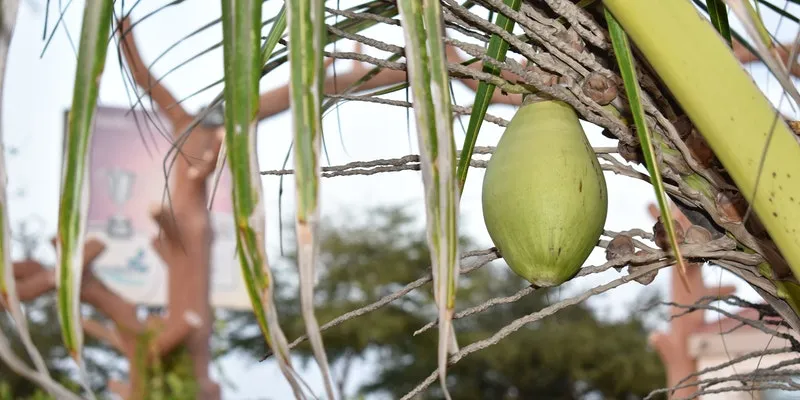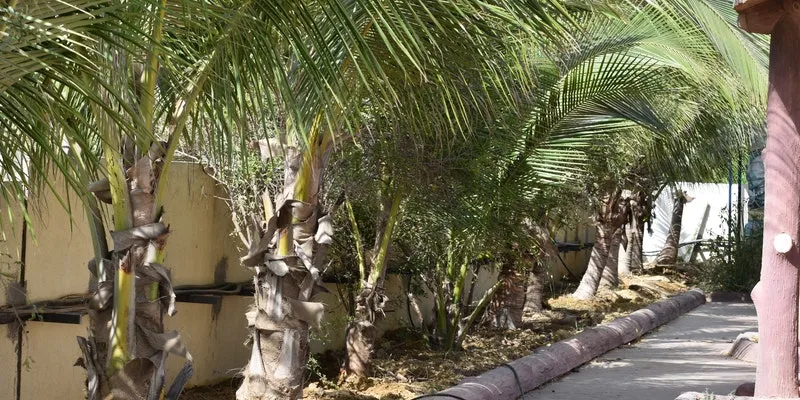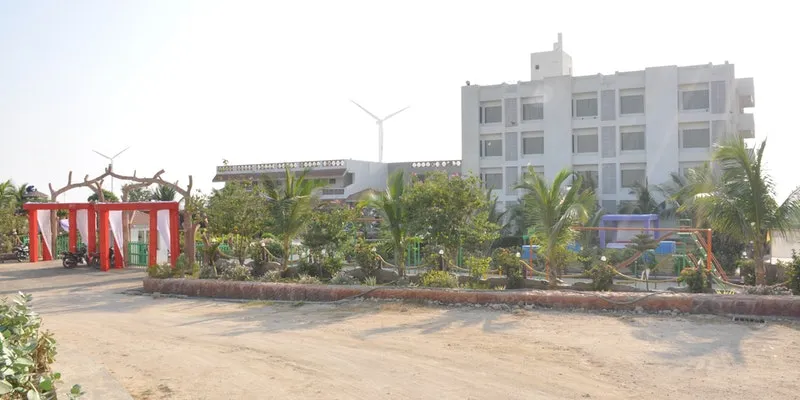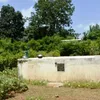How this resort in Gujarat is harvesting nearly 3.5 million litres of rainwater every year
Started by Shitalkumar Bhatia in 2010, Dwarka-based Goverdhan Greens has implemented rainwater harvesting to save water. It has also been awarded by the Gujarat government as the “Best Green Resort of Gujarat” for its conservation efforts.
As India’s water problem increases year after year, soon there might be a situation where we may not even get a chance to resolve the issue. According to a report by NITI Aayog, at least 21 cities in India are expected to run out of groundwater by 2020.
The effect of climate change is also becoming more evident with hotter summers and erratic monsoons. Years of rampant destruction of natural water bodies and the exploitation of groundwater resources have created conditions where dystopian science fiction stories of water wars are almost becoming a reality.
Realising the gravity of the situation, ‘Goverdhan Greens’, a resort located in Dwarka, Gujarat, is showing us that if each of us takes responsibility, we can avert a grievous future.
Started by Shitalkumar Bhatia in 2010, the resort is conserving water through rainwater harvesting and is also following sustainable agricultural practices.
“In a span of five years, between 2010 and 2015, Goverdhan Greens has harvested one million litres of water annually, and from 2016 to 2019, we have steadily scaled up our endeavour by harvesting 3.5 million litres a year. The resort is a ‘net water-positive hospitality business’. This means we harvest more water than we lift from the ground,” says SV Bhatia, CEO, and Goverdhan Greens.
The journey
Since childhood, Bhatia says he used to conserve water. “Even today, I fondly remember how my family members used to collect and conserve rainwater. They used to utilise the same water for cooking and drinking too. So, the concept of harvesting rainwater was inculcated in me since childhood,” says Bhatia.
Since Dwarka is a sea-facing city, while building the resort, the initial water available to him was not suitable for any purpose. Bhatia had two options in front of him when it came to implementing water purification - desalination and reverse osmosis (commonly known as the RO method).

The plants are watered using recycled water
While desalination is essentially the process of removing salts and minerals from seawater, RO deals with using a partially permeable membrane to remove ions and unwanted molecules.
Since there was no public drainage system at that time, he needed to strategise how he could safely dispose of the water used in the resort. Considering the abundance of trees at the resort, Bhatia knew he would need plenty of water to maintain them, but he was trying to figure out the best way to utilise it.
“At the time, desalination appeared to be the favorable option. However, the cost of capital amounted to Rs 3 crore. Further, the TDS (Total Dissolved Solid Levels) and hardness (Calcium and Magnesium levels) did not render the process eco-friendly. Reverse Osmosis (RO) too had its own problems with regard to the disposal of water,” says Bhatia.
The Eureka moment
According to Bhatia, when he was pondering over the quality of water that was available, and how best he could harvest it, a Eureka moment occurred to him.
Bhatia knew that if he wanted to improve the quality of the reject water, he would need to improve the input water as well. By increasing the quality of input water by mixing the rainwater and groundwater together, the results ought to be better.
Rainwater harvesting could be taken up in the process simultaneously. Like a bank account, he believed it was better to save rather than spend.

Bhatia decided to build a borewell purely for recharge purposes in addition to the construction of a horizontal borewell connected to the water well. Realising the quality of rainfall in Gujarat was good from July to November, he decided to collect more water during this time, and preserve it for the hotter months of March and April.
“I needed to have a judicious approach when it came to the matter of harvesting rainwater,” Bhatia says.
He saw the successful results of this approach when Gujarat had two back-to-back monsoons in the year 2010-2011. The recharge efforts paid off heavily as he began to continue focusing on harvesting more water for the future.
A green resort
Located on the outskirts of the ‘city of gold’, Dwarka, Goverdhan Greens is spread over 13 acres lush green land, and is surrounded by numerous trees.
However, the aspect that stands out the most about the resort is its efforts towards water conservation and sustainable agriculture.

The resort gets around 3.5 million litres of water through rainwater harvesting annually
Apart from rainwater harvesting, the resort has also taken other steps to save water, including reusing shower water to flush the toilets, and treating and recycling groundwater. The recycled water is also used to wash dishes in the kitchens and to maintain the greenery in the surrounding area. These measures have proven to be 90 percent effective, says Bhatia.
Goverdhan Greens is also following other eco-friendly practices such as setting up a drip irrigation system for crops. It also makes use of cow dung to make compost for agriculture, and practices chemical-free farming to ensure the groundwater does not get chemically contaminated.
Tackling water crisis
Today, Goverdhan Greens harvests about 3.5 million litres of rainwater annually. The resort has also been recognised by the Gujarat government, which awarded them as the “Best Green Resort of Gujarat” for their conservation efforts.
Dhaval Barot, who looks after the sales and marketing at Goverdhan Greens, says, “With our water conservation practice, we have become self-sufficient, and we never have to purchase water from any outside source. This is a simple and cost-effective thing to do, and far more cost-effective than usual treatment plants.”
“Water is something that cannot be manufactured. Our approach is simple, which is to try and retain as much water as possible,” he adds.
Bhatia also encourages others to adopt healthy water conservation practices, and hopes they can take inspiration from the resort’s water conservation approach.
“I believe that mother nature has blessed us in abundance, but we as a society need to make an effort to sustain the resources provided to us. If other institutions and individuals adopt similar practices, they can save cities like Bengaluru and Chennai from running out of water. After all, it does pay to be a socially responsible citizen.”
Future plans
In future, Goverdhan Greens plans to create an 'agreetainment park', which consists of a fusion of agriculture and entertainment. This will be a unique endeavour to make the entire complex self-sustainable, says Bhatia.
He also hopes to expand his rainwater harvesting practice and aims to harvest seven million litres of water in the near future.
(Edited by Megha Reddy)









